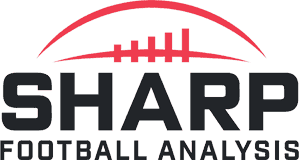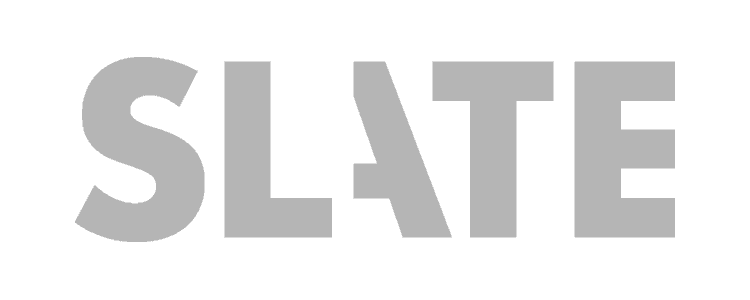The Worksheet, a fantasy football overview by Rich Hribar, breaking down everything you need to know for the Week 13 Buffalo Bills at San Francisco 49ers Monday Night Football game.

| Buffalo | Rank | @ | San Francisco | Rank |
|---|---|---|---|---|
| -2.5 | Spread | 2.5 | ||
| 25.25 | Implied Total | 23.75 | ||
| 27.2 | 10 | Points/Gm | 23.7 | 20 |
| 25.6 | 18 | Points All./Gm | 23.1 | 11 |
| 63.2 | 21 | Plays/Gm | 64.5 | 12 |
| 65.4 | 18 | Opp. Plays/Gm | 60.4 | 4 |
| 39.9% | 22 | Rush% | 42.1% | 14 |
| 60.1% | 11 | Pass% | 57.9% | 19 |
| 42.3% | 17 | Opp. Rush % | 45.0% | 26 |
| 57.7% | 16 | Opp. Pass % | 55.0% | 7 |
- Buffalo has not won on Monday night since the 2015 season (0-4) and are 1-3 straight up and against the spread in prime time under Sean McDermott.
- The Bills have led for 55.7% of their offensive snaps, the highest rate now on the season.
- 52.1% of the scoring plays against San Francisco this season have been touchdowns, the second-lowest rate in the league.
- The 49ers are third in the NFL in points allowed per attempt on throws within 15 yards of the line of scrimmage (0.31) and 31st beyond (1.03).
- Deebo Samuel has 318 receiving yards this season and 348 yards after the catch.
Trust = spike production for that player
Bust = down-week production for that player’s standards
Quarterback
Josh Allen: Allen has thrown for 5.8 and 6.5 yards per pass attempt his past two games against the Cardinals and Chargers. Last week’s game did not aid his cause in suggesting that he needs John Brown available for fantasy purposes. Obviously having Brown available is a plus, but Allen also has games throwing for 9.4 Y/A and 8.6 Y/A on his resume this season with Brown out or leaving early, and another 311-yard game with Brown absent.
This matchup here is intriguing because the 49ers are excellent against short to intermediate passing teams, but struggle with vertical passers. Just 16.2% of Allen’s passes this season are over 15 yards downfield, which ranks 25th among qualifying passers. From Weeks 1-6, Allen was 22-of-36 (61.1%) on those passes for 16.8 yards per attempt. Since then, Allen is 10-of-27 (37.0%) with 9.9 yards per attempt on throws over 15 yards downfield.
The one out here is San Francisco has long struggled with mobile quarterbacks due to defensive scheme. For the season they have allowed the most rushing yards to opposing quarterbacks (31.0 per game). That gives Allen an out as a lower-end QB1 of struggling once again downfield.
Nick Mullens: Mullens has not finished higher than QB16 in any of his five starts this season, closing as the QB24, QB20, and QB24 in his past three games. The Bills have started to come around defensively, at least improving from the start of the season. Over their past five games, Buffalo has held opposing passers to a 62.4% completion rate and four touchdown passes to six interceptions after a 70.3% completion rate and 12 touchdowns to two interceptions over their opening six games. Mullens is only a 2QB option.
Running Back
Raheem Mostert (TRUST): Mostert only posted 43 yards in his first action since Week 6, but he led the 49ers backfield with 29 snaps (40.3%) and 18 touches. That snap rate was below the 60% and 48% he played in his lone two full games this season, but Mostert leading the backfield and getting through a complete game is a welcome site. The Bills can be run on, too. Buffalo is allowing 4.6 YPC to backs (25th) and are allowing 104.3 yards rushing per game to backs (26th).
Bills RBs: It seems that no matter what, this is destined to be a combination backfield throughout the rest of the season. After Zack Moss was making his move, Devin Singletary out-touched Moss 14-11 last week and it was warranted as Singletary turned in 102 yards to 68 for Moss. In eight games played together, it was just the second time that Singletary was a top-30 scorer while Moss has cracked the top-30 in five of those games since he still has the touchdown equity between the two backs.
San Francisco is allowing 3.7 YPC to backs (sixth) and 10.5 rushing points per game (fourth) to backfields. Both Bills backs are RB3/FLEX options.
Wide Receiver
Stefon Diggs: It was a floor game (7-39-0), but Diggs has still scored at least double-digit PPR points in every game this season. From a yardage-based slant, it was his fewest in a game this season. But we can count on Diggs’s volume here, especially with Brown sidelined. In three games with Brown sidelined, Diggs has seen 34.8%, 25.6%, and 36.0% of the team’s targets come in his direction with six or more receptions in each game. The 49ers are 22nd in points allowed per game to WR1 options (16.4) while Diggs moves all over the field for the Bills. Continue to keep Diggs in play as a volume-based WR1.
Deebo Samuel: Samuel is coming off a career-game last week, catching 11-of-13 targets for 133 yards. His 37.1% team target share was a career-high as well. In his past three games on the field, Samuel has had 18.0, 12.2, and 24.3 PPR points. Since Samuel gets so many receptions at and behind the line of scrimmage (he has a 1.7-yard average depth of target) top cornerback matchups are sort of irrelevant for him. We likely see Tre’Davious White impact Brandon Aiyuk more than Samuel because of that, leaving Samuel as a WR2 option.
Cole Beasley: Beasley threw a touchdown pass last week to buff his 2-25-0 line to a degree, nuking the idea that he was going to solely be a target-hog because of Brown’s absence. Beasley has three or fewer catches in three of his past four games, but he does have spike weeks on his resume of 11-109-1 and 11-112-0 over his past five to offer some upside as a WR3. The matchup here is tough, however for the reasons cited throughout. San Francisco is stronger against options that rely on shorter completions. Beasley is floor-based FLEX and a better DFS option than seasonal starter.
Gabriel Davis: Davis is the one clear player involved with all of the Brown on/off splits that is truly impacted since he is his direct replacement. In the three games Brown has missed outright, Davis has run a pass route on 100%, 97.9%, and 100% of the team drop backs. In those games, he has had games of 5-58-0, 1-11-0, and 3-79-1, but Davis leads the team with a 14.9 yard average depth of target in those games, which makes him an intriguing WR4/FLEX dart throw and single-game DFS play lined up where the 49ers get beat defensively.
Brandon Aiyuk: Aiyuk has benefited the most from the deteriorating San Francisco roster, posting lines of 6-115-0, 8-91-0, and 7-75-1 over his past three games played. Aiyuk was a first-round selection, so I do not want to overly discount his emergence as a player, but he has received 30.5% of the team targets over that span after 14.2% prior.
In the three games he has played with Samuel on the field for the full game, Aiyuk had games of 2-18-0, 3-44-0, and 2-12-1 receiving. I also suspect the Aiyuk will draw White’s attention more here with Samuel getting more creative touches, leaving Aiyuk as a WR5 option.
Tight End
Jordan Reed: Reed managed just a 2-18-0 game last week, but did see six targets (17.1%) and ran a pass route on 67.6% of the team dropbacks. The Bills have allowed a league-high 6.0 receptions per game to opposing tight ends and have allowed seven TE1 scoring weeks this season, giving Reed some streaming appeal and a potentially overlooked option in single-game DFS.

More Week 13 Fantasy breakdowns from The Worksheet:
CIN at MIA | DET at CHI | NO at ATL | JAX at MIN | CLE at TEN | LVR at NYJ | IND at HOU | NYG at SEA | LAR at ARI | NE at LAC | PHI at GB | DEN at KC | WFT at PIT | BUF at SF | DAL at BAL















